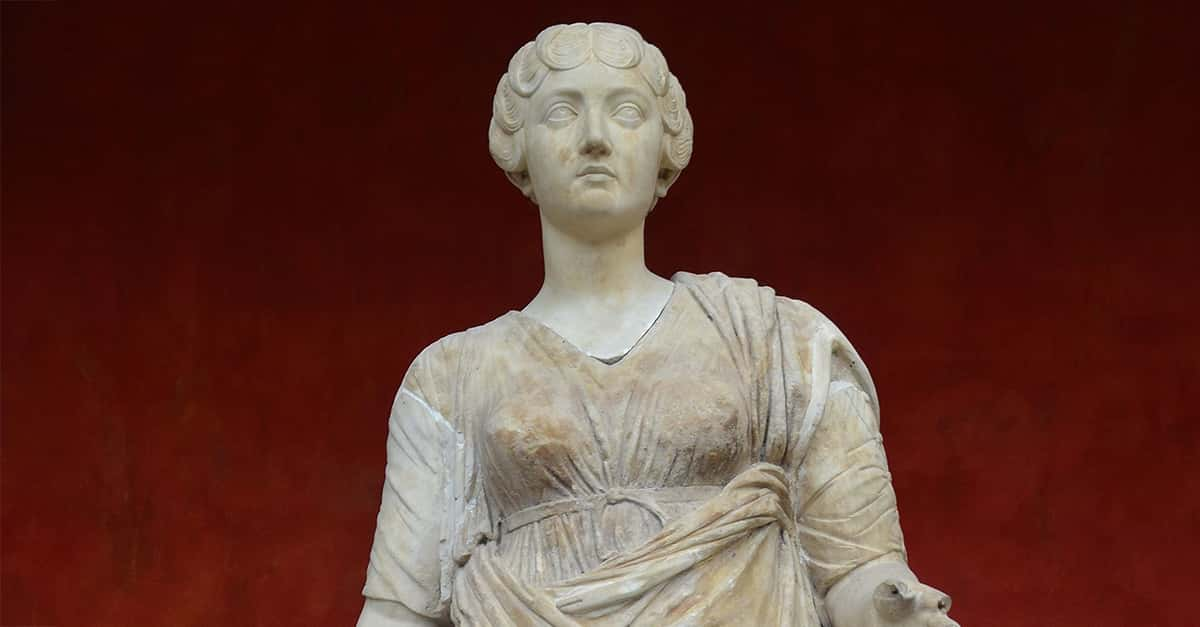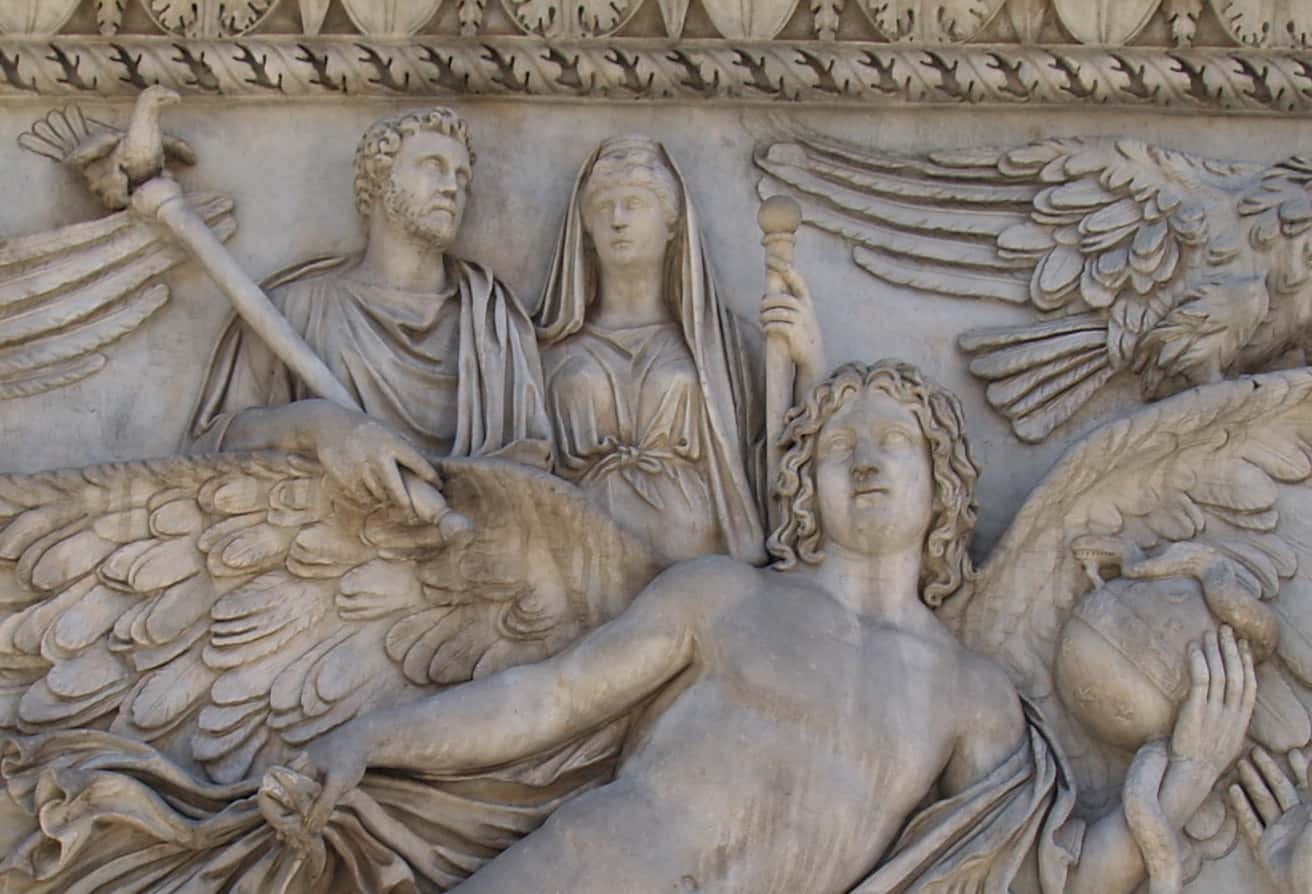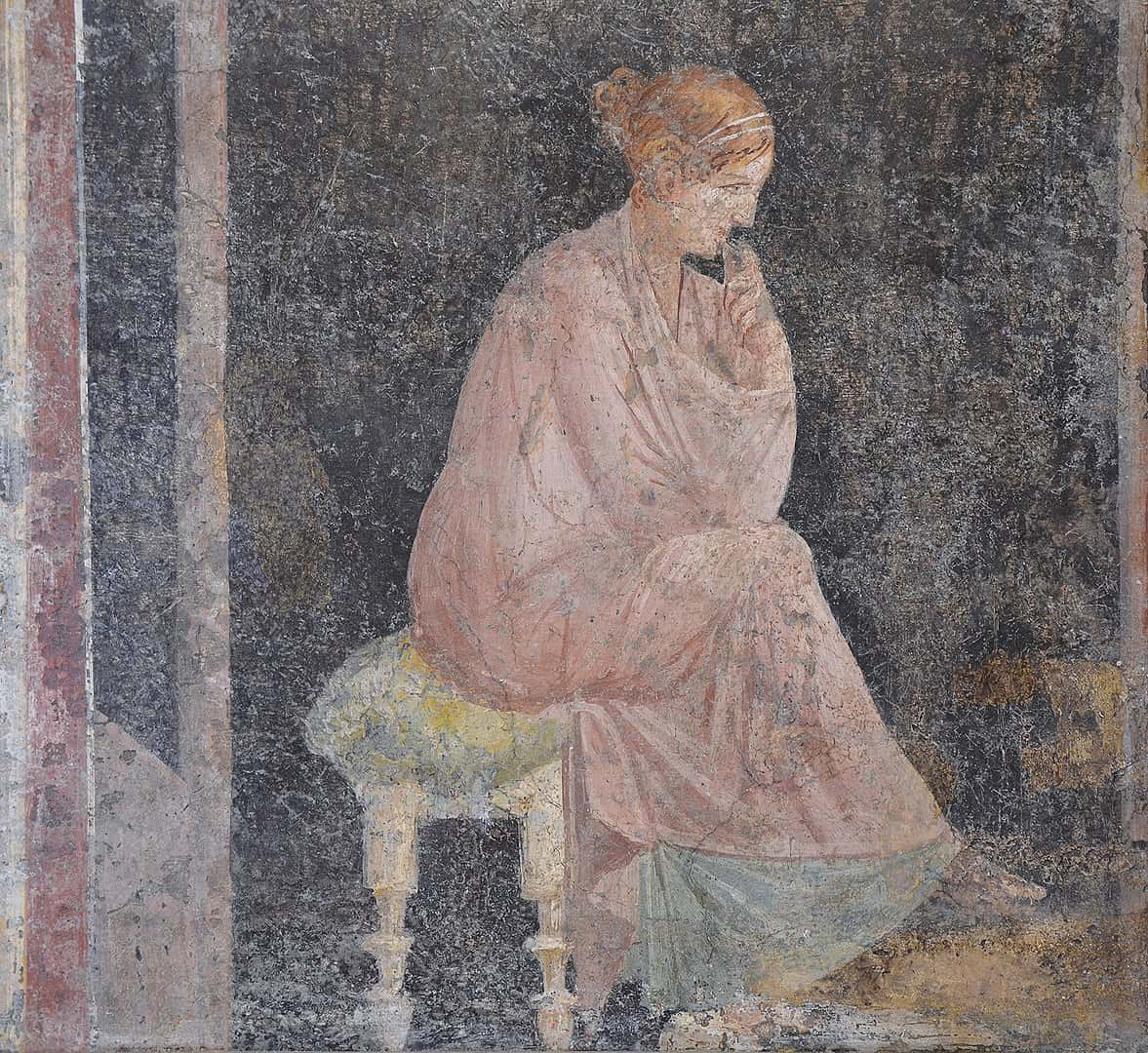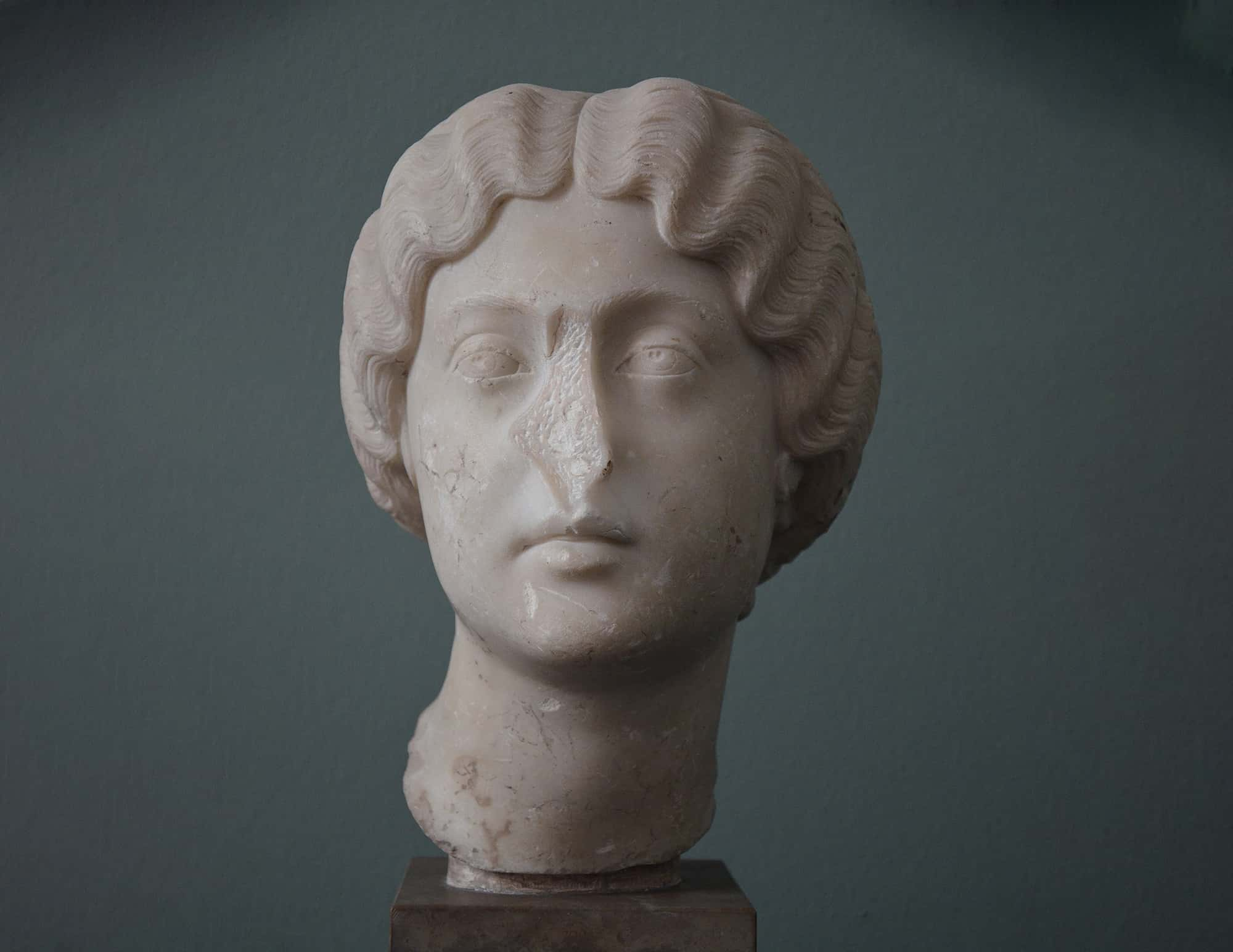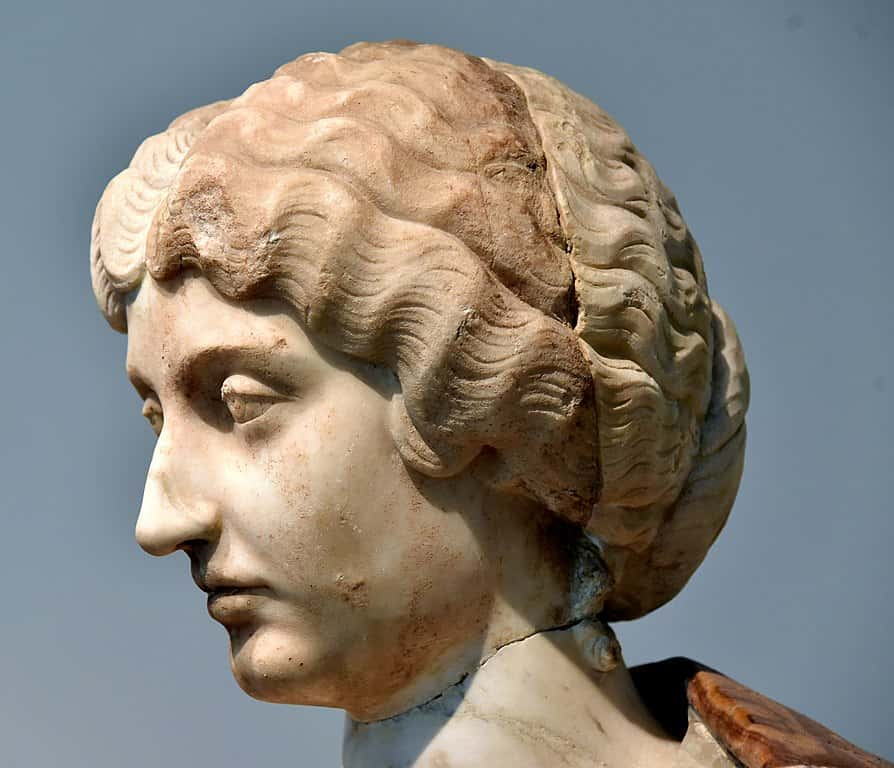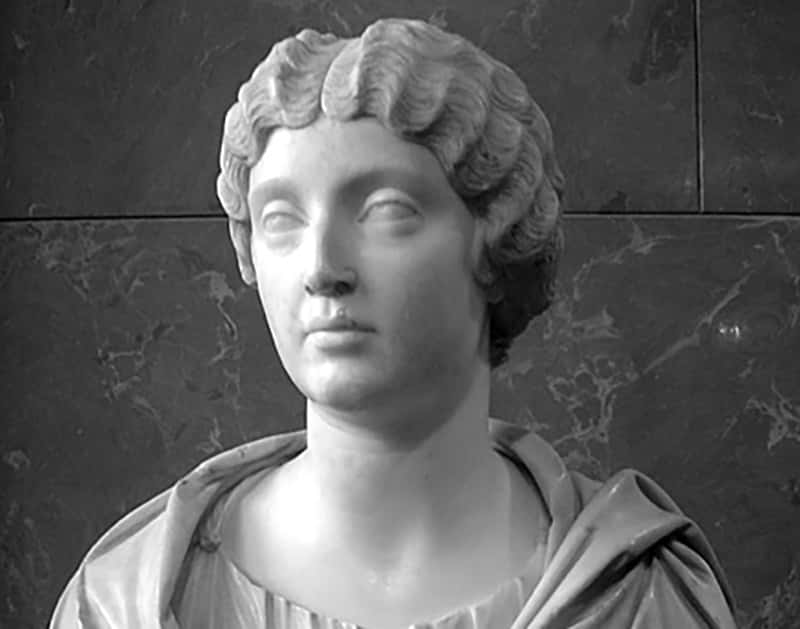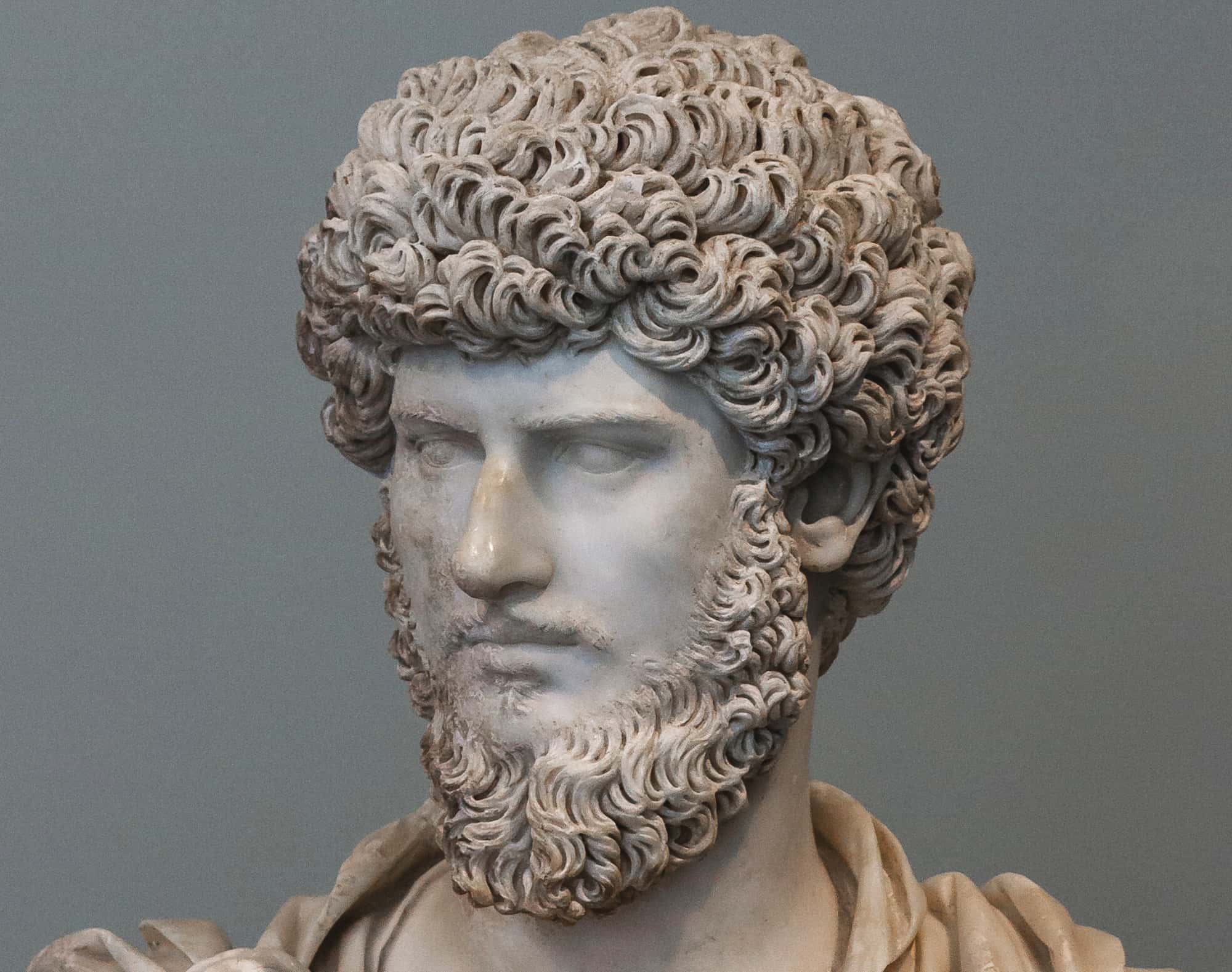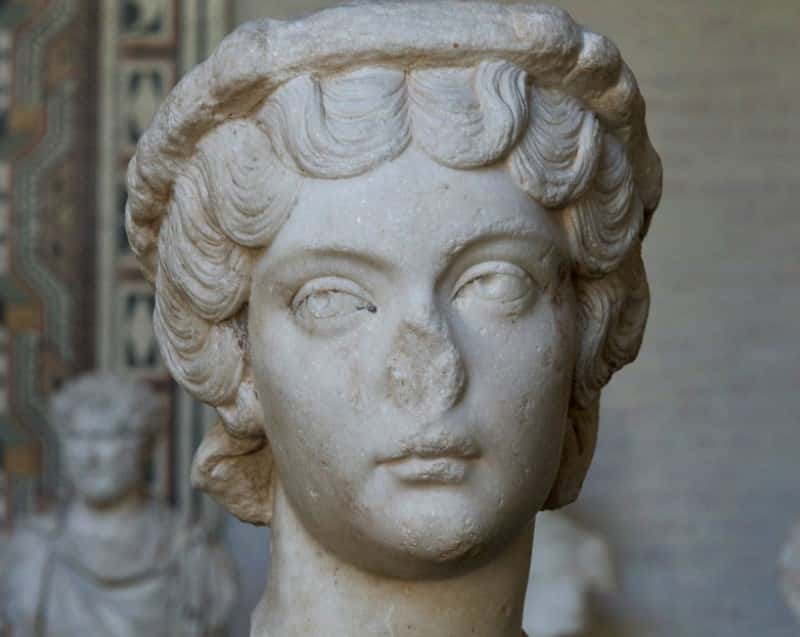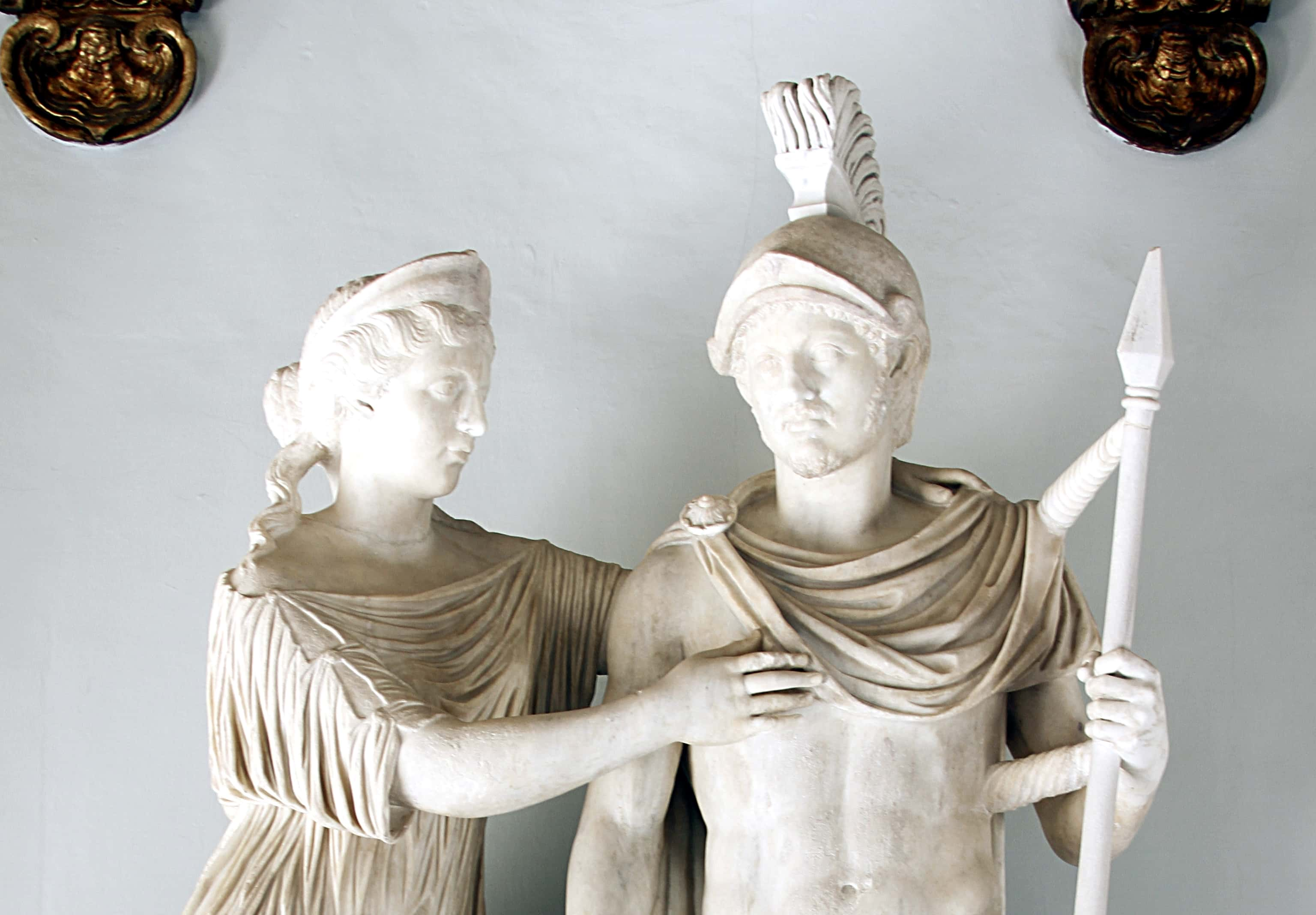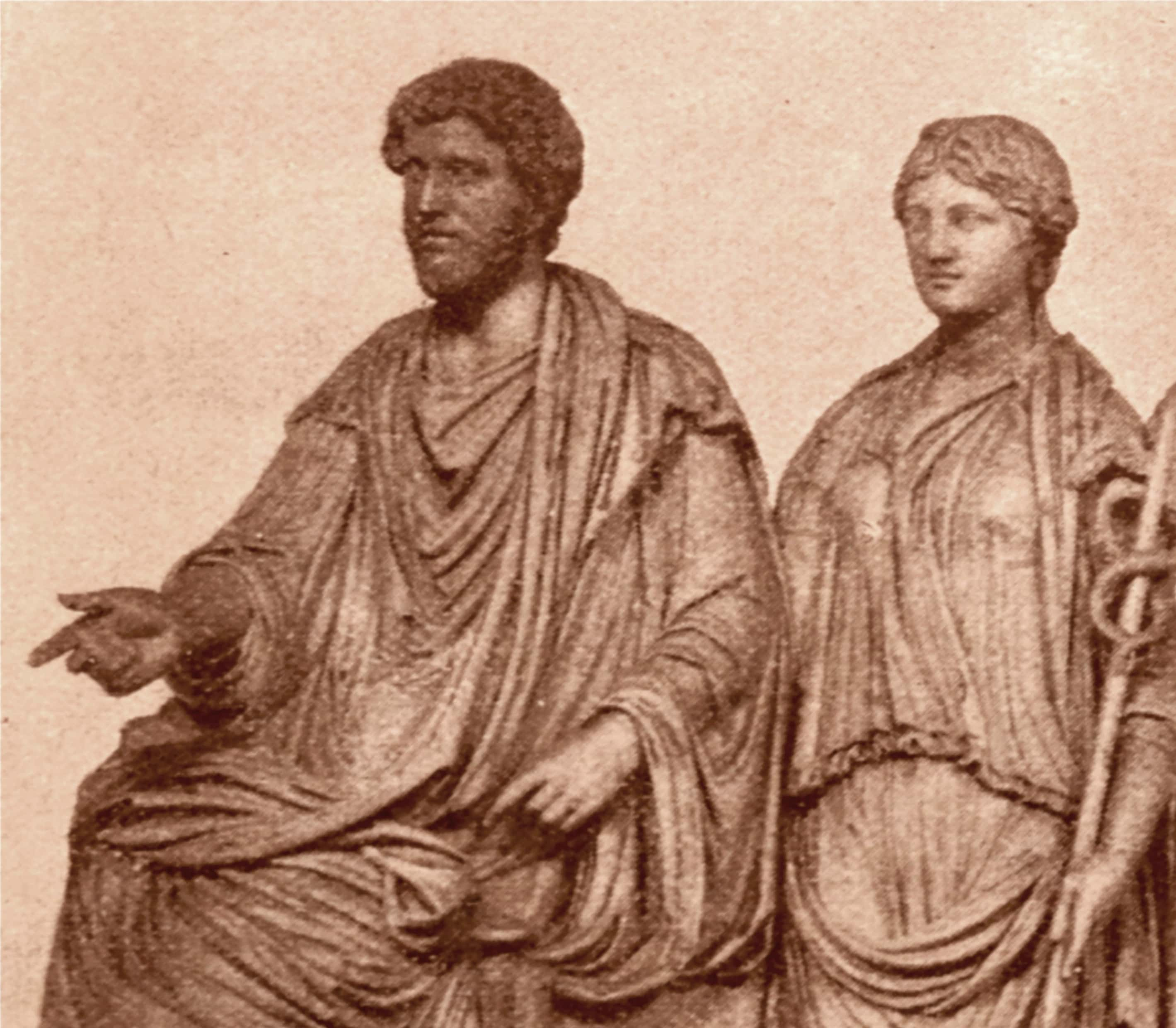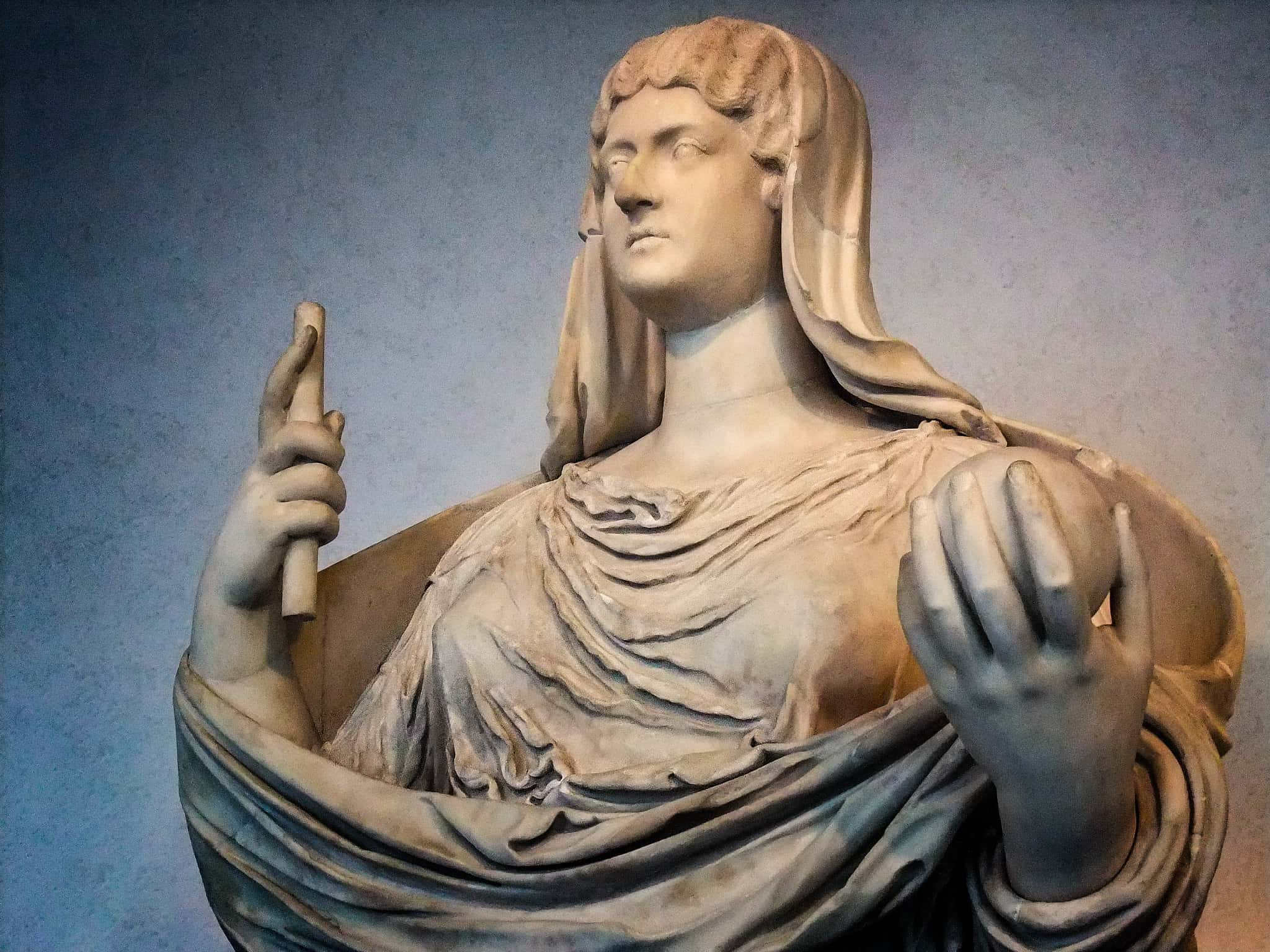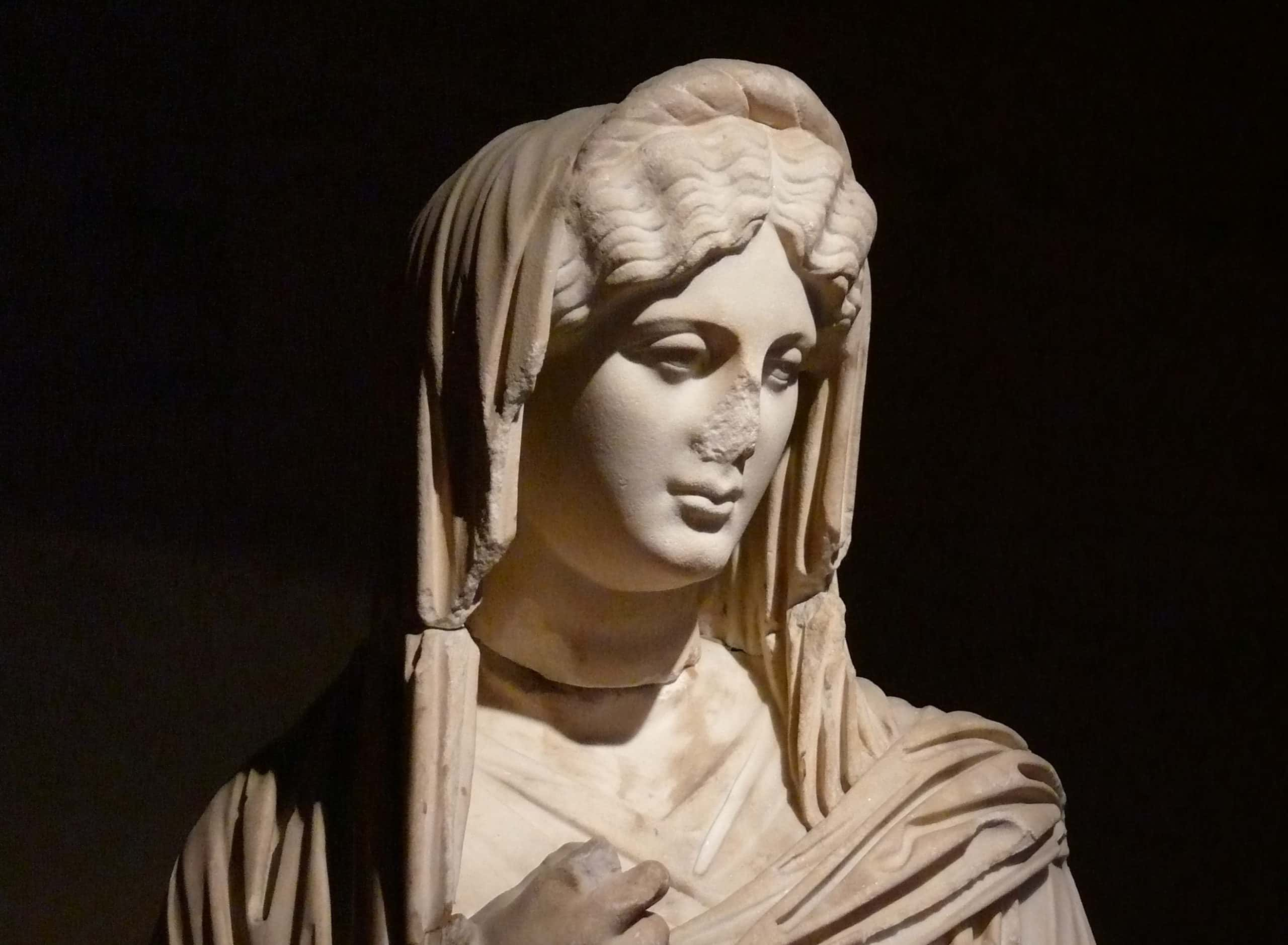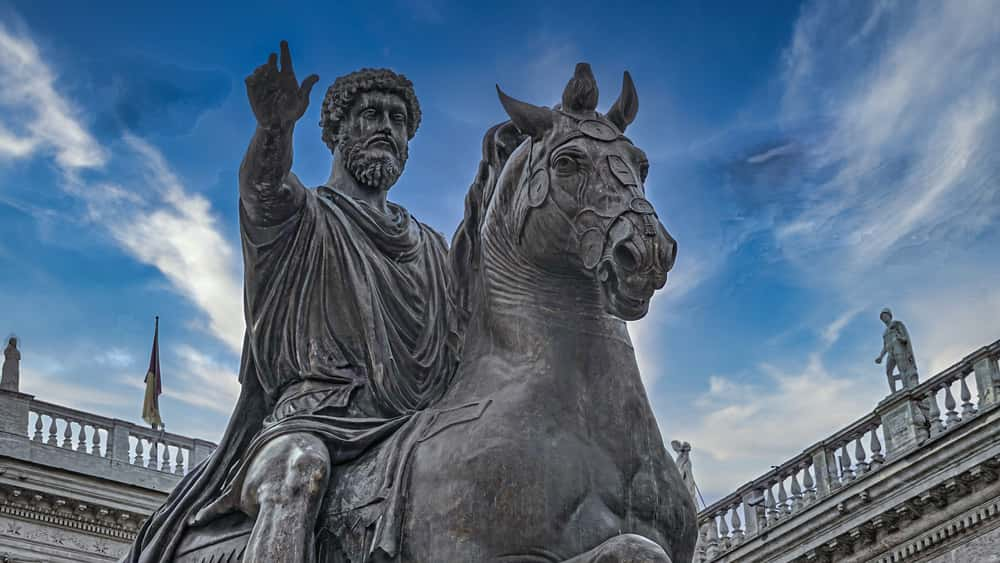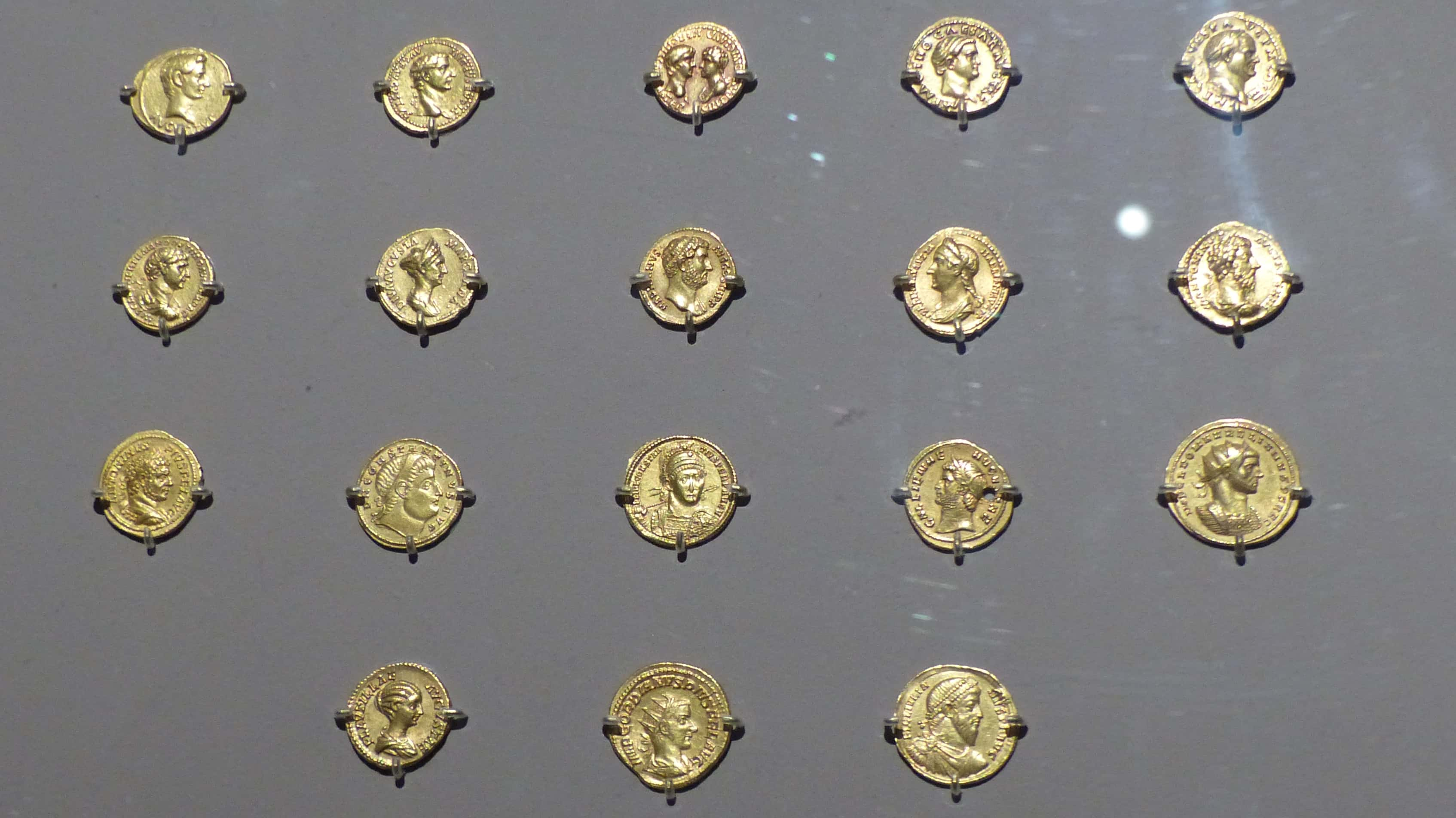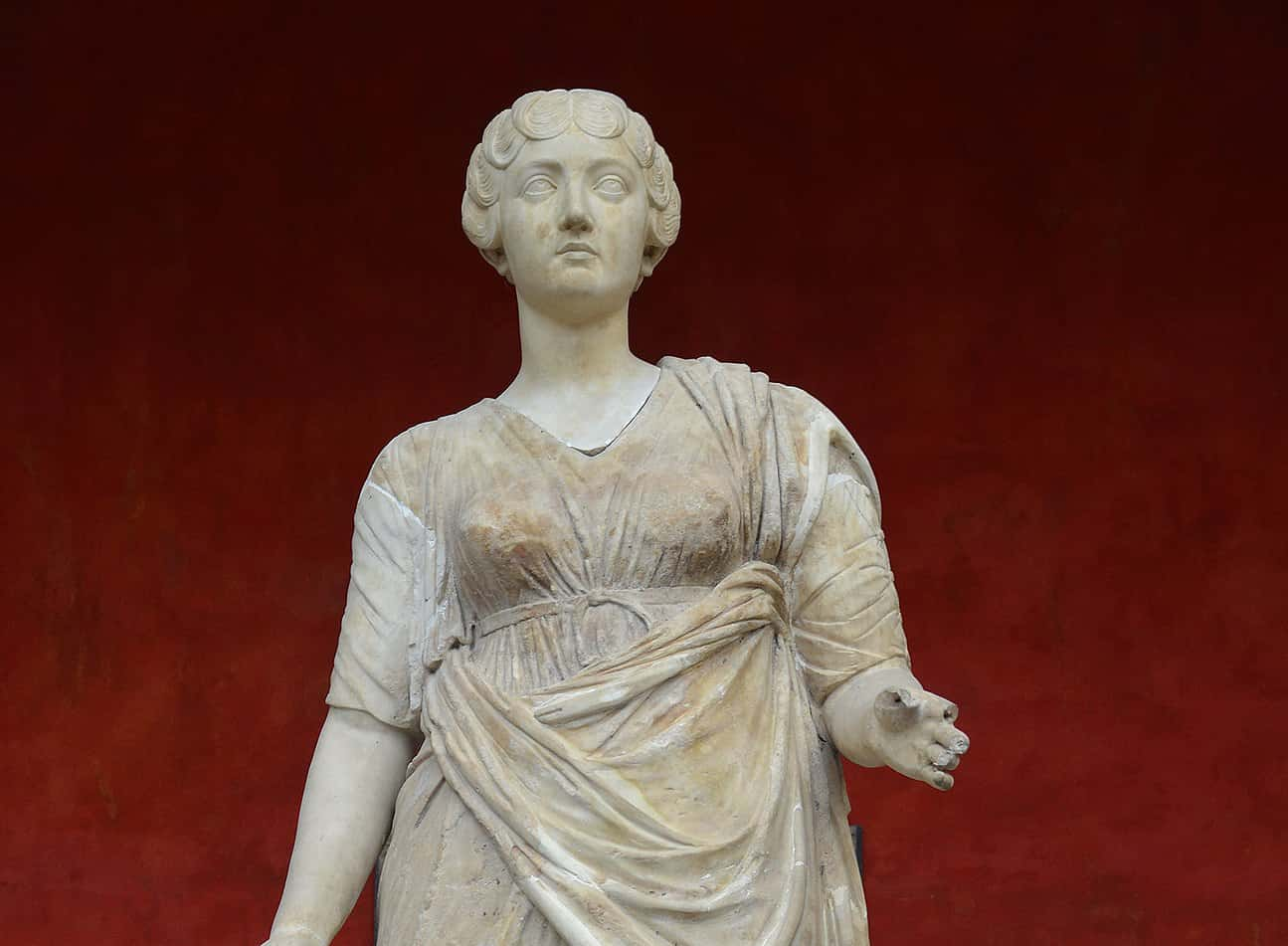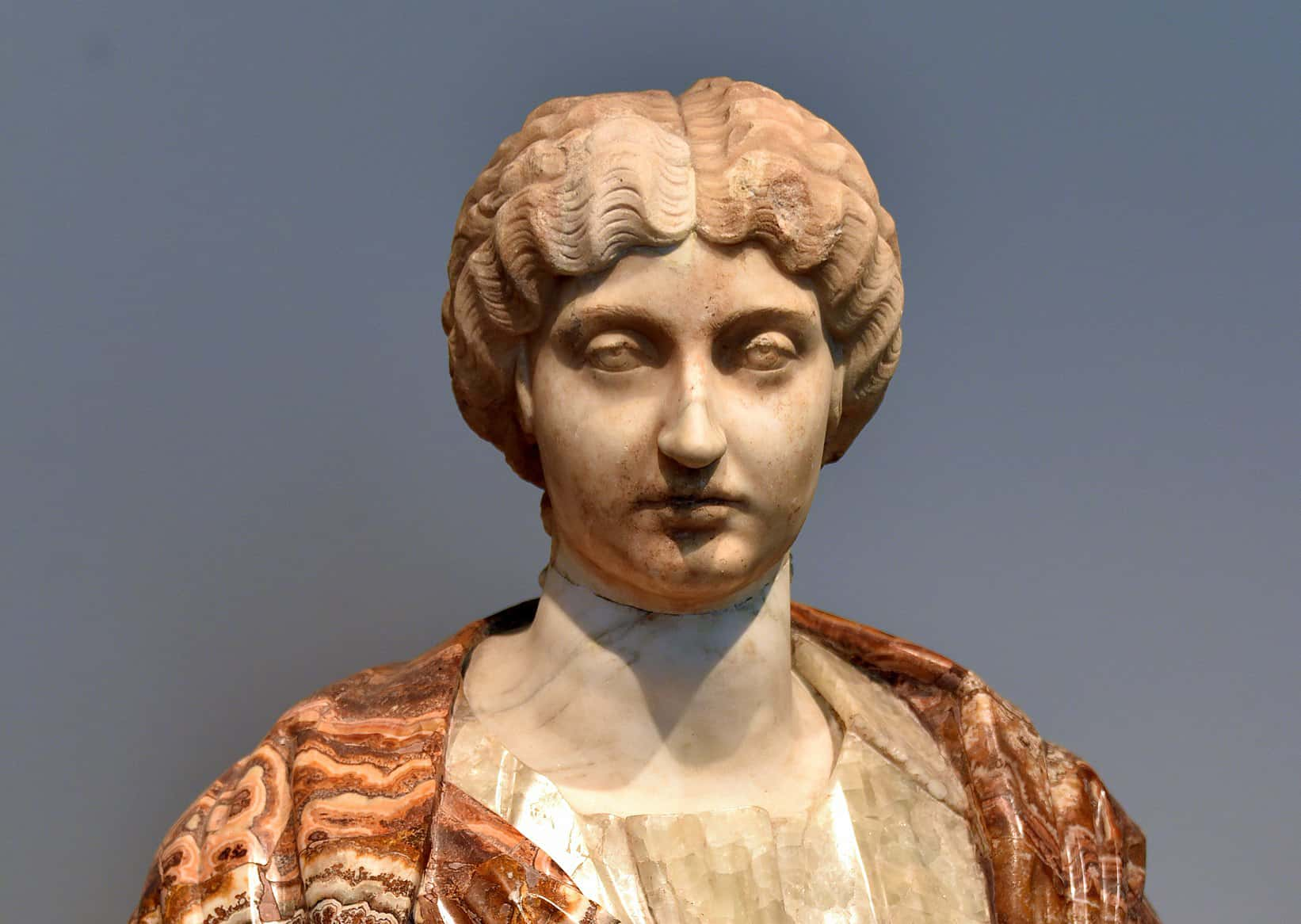Stories from the Roman Empire rarely disappoint. With all its tales of gladiators, conquests, and messy love stories, reality tv producers would have had a field day if television existed back then. One character from the Roman empire that doesn’t get much airtime is the Roman empress, Faustina the Younger—one of the most shameless and scandalous royals of her time.
1. She Had A Hard Act To Follow
Faustina had impossibly large shoes to fill. You see, her illustrious mother, Annia Galeria Faustina, left a virtually flawless legacy. She graciously did her duty as a Roman empress, and the countrymen loved her so much that they gave her the highest title a woman could receive at that time, “Augusta”. Faustina's father also declared her mother a goddess.
But despite having to follow in the shadow of greatness, there was one thing about little Faustina that made her stand out from all the rest.
2. She Got Lucky
Child mortality in Rome rocketed past the rest of modern society at the time Faustina was born in 130 AD. Babies rarely survived through childhood. In fact, Faustina became the only child of her parents to survive to adulthood. Faustina was lucky to be alive at all, but also lucky to be alive in Rome when she was. Fortune had certainly smiled on her...for now.
3. She Had The Best Of Rome
At her birth, Rome experienced a time historians called the “Pax Romana". While they continued to repress enemy countries and cultures, Rome itself lived in peace, with diplomatic transfers of power from one emperor to another. This soon came to an end, however, and in some ways, Faustina may have played a disturbingly major role in the end of the great Roman period.
4. She Had No Control
Faustina never got the chance to make her own life plans. She lived with all the lavish comforts and luxuries afforded to the highest members of the wealthy Roman empire, but there was one disturbing downfall to her station. She had no control over her own life. Her father steered her wherever he pleased, and the consequences were chilling.
Long before becoming an adult by our contemporary standards, Faustina's family forced her into very adult, life-altering positions.
5. Her Marriage Was Political
Faustina’s family arranged her first marriage, and she had no say in the matter. When her second cousin, emperor Hadrian, adopted Lucius Verus to be his heir, he arranged Faustina’s marriage to him. This set an only eight-year-old Faustina as the future Roman empress. Marrying at eight is traumatizing enough, but her marriage drama was only just beginning.
6. She Kept It In The Family
Just seven years after her first marriage, Faustina’s father stepped in and threw her for a loop. He ended the betrothal and remarried her to his own chosen heir, Marcus Aurelius. Aurelius was actually Faustina’s cousin on her mother’s side, and technically her adopted brother. None of this seemed questionable at the time, though Faustina didn’t really have a choice either way.
Of course, by today's standards, her marriage to a family member wasn’t the only taboo aspect of the union.
 The Fall of the Roman Empire (1964), Paramount Pictures
The Fall of the Roman Empire (1964), Paramount Pictures
7. She Married An Older Man
Doing as she was told, a now 15-year-old Faustina married her cousin, a man nearly ten years her senior. No records directly reveal Faustina’s thoughts and opinions on the matter, though we can only imagine that her father wouldn’t take them seriously even if she did share them. Now a young teenager, and soon to be empress, Faustina turned to her next huge responsibility as a Roman royal.
8. She Never Stopped
Because children so rarely survived in Rome during this time, any woman who could bear many children appeared especially blessed. And, well, Faustina was unbelievably fertile, having nearly 14 children over the course of 21 years. But despite birthing baby after baby, this took an undeniable toll on the empress. Motherhood only invited tragedy and heartbreak into her world.
9. She Faced Tragedy After Tragedy
Although Faustina spent a good deal of her reign pregnant, she’d ultimately lose most of her children. More than half of them died before reaching adulthood, a fact that must have been difficult for both her and her husband. Still, she was still considered successful in childbearing, a fact that proved worthy of a very special honor.

History's most fascinating stories and darkest secrets, delivered to your inbox daily.
10. Her Fertility Was Legendary
The Roman locals praised Faustina’s childbearing, calling her the “fertile empress". Officials even minted a coin in her honor, with the engraving depicting her with four children. Aurelius eventually became emperor in 161, with his supposedly virtuous and well-loved wife at his side. Faustina seemed ready to perform her role as the perfect empress—but, in reality, her behavior proved far from perfect.
 Roman Empire (2016– ), Netflix
Roman Empire (2016– ), Netflix
11. She Barely Survived
Once Faustina and her husband actually came to power, tides started to shift in the Roman empire. On one hand, dangerous plagues swept the country, lowering the population and hurting the economy. Neighboring countries made advances on Rome, and the health of Aurelius began to waver. The stress of these outward forces affected Faustina in a singular way—and she reacted scandalously.
 The Fall of the Roman Empire (1964), Paramount Pictures
The Fall of the Roman Empire (1964), Paramount Pictures
12. She Pursued Her Passions
Faustina wasn't always the picture of decorum. In fact, she may have been a lot more of a slave to her desires than some historians record. Multiple rumors insist she continually had passionate extramarital affairs with sailors, soldiers, and even gladiators. As a matter of fact, one rumored affair got particularly bloody.
13. She Revisited Her Past
Among many other notable rumored affairs, Faustina may have gotten romantically involved with her first husband, Verus, while technically married to Aurelius. Perhaps onlookers could consider this back step forgivable, even if Faustina was just a child when she was betrothed to him. However, the affair becomes less forgivable when considering her new family connection to this old lover.
14. She Had A Twisted Love Triangle
Let's talk about betrayal. During Faustina's rumored affair with Verus, he was married to Lucilla—Faustina’s own daughter. Not only was Verus her first husband, but he was then also her son-in-law. The whole debacle must have made for some interesting family dinners, even more so when Faustina discovered that Verus admitted the whole affair to his wife.
Faustina couldn’t live with the betrayal and decided to take extreme action.
 The Fall of the Roman Empire (1964), Paramount Pictures
The Fall of the Roman Empire (1964), Paramount Pictures
15. She Took Revenge
Faustina reportedly poisoned Verus once she found out that he'd betrayed her trust. While some reports state that Verus died in battle, others report that he perished with symptoms consistent with food poisoning, which lends to the rumors that Faustina ordered the poisoning that ended his life. However, Verus may not have been the only person to cross this passionate empress and suffer the consequences.
16. She Was Ruthless
Roman society likely expected Faustina to be a lot like her mother, notably virtuous and pious. But Faustina had her own ideas about the right ways to rule. In fact, she is quoted as declaring that. “Leaders and soldiers are accustomed to crush others if they themselves are not crushed”. It’s no wonder she felt like she could take charge when people’s lives hung in the balance.
 Roman Empire (2016– ), Netflix
Roman Empire (2016– ), Netflix
17. She Played God
Roman executions were notoriously gruesome, including crucifixions, being impaled, and, sometimes, torture. As empress, Faustina clearly carried great weight in the affairs of the day. As such, rumors have it that she ordered the deaths of many others during her reign. While her reasons remain unclear, she didn’t hesitate to order the end of her enemies.
With allegations of her evil behavior swirling throughout Rome, the locals looked to her husband for a response. But Aurelius’ response to his wife’s transgressions shocked everyone.
 Roman Empire (2016– ), Netflix
Roman Empire (2016– ), Netflix
18. Her Husband Excused Her
Faustina’s husband didn’t seem to hold any of her behavior against her, and the public thought poorly of Aurelius’ lack of action. On the subject of Aurelius’ treatment of his wife, one critic of the time even said, “Other people’s misdoings, in particular his wife’s, he tolerated, making no fuss and exacting no punishment". Maybe Aurelius was just being a considerate husband—but then he made an utterly bizarre judgment call.
 Roman Empire (2016– ), Netflix
Roman Empire (2016– ), Netflix
19. Her Lovers Got Passes
Faustina’s husband did the opposite of what people expected. He not only excused his wife’s behavior, but he also often promoted her lovers to positions of great status. With his wide-reaching power as emperor, Aurelius could have surely ordered these lovers killed. Instead, he honored them. This looked like weakness on Aurelius’ part, but unfortunately for Faustina, he had other, more selfish, motivations.
 Roman Empire (2016– ), Netflix
Roman Empire (2016– ), Netflix
20. She Was A Pawn
Aurelius believed that maintaining his wife was just par for the course. After all, she was a key part of the deal he struck to gain rule of the Roman empire. Records show that, when advisors encouraged Aurelius to severely deal with Faustina, he responded by declaring “If I send away my wife, I must also repudiate her dowry”. Simply put, his hands were tied.
To Aurelius, Faustina seemed to be just a pawn in the political game he played to hold his position. Faustina, now free to woo and bed whoever she pleased, took her infidelity a little too far.
 Roman Empire (2016– ), Netflix
Roman Empire (2016– ), Netflix
21. She Cheated Carelessly
Faustina seemed to get away with most of her affairs, so much so that she eventually stopped caring whether her husband knew or not. In fact, her husband once caught her having breakfast with one of her lovers. Her shameless behavior likely embarrassed the emperor—but little did he know, Faustina had an even greater public humiliation in store for him.
22. She Made Her Husband A Joke
The arts played a huge role in Roman society at the time, including comedic theater. Making fun of the news was the norm for some of these comedies, but things got awkward at one particular performance that Aurelius attended. The act used a pun to ridicule Faustina and Aurelius’ marriage, likely hinting at the empress’ constant infidelity. But that wasn't all.
23. Her Husband’s Health Scared Her
Faustina’s behavior not only threatened her husband’s image, but eventually threatened his rule as well. In 174, Faustina’s husband became extremely ill. The sickness possibly resulted from ulcers. Whatever the case, Aurelius’ diminished state concerned Faustina, so much so that she allegedly made a decision of dire betrayal.
 Roman Empire (2016– ), Netflix
Roman Empire (2016– ), Netflix
24. She May Have Been A Traitor
With her husband’s health on the fritz, some reports state that she encouraged a revolt against her husband’s rule. She allegedly gave her secret support to Roman general Avidius Cassius, who ultimately proclaimed himself emperor after a false report on Aurelius’ death. Faustina’s reputation caused many to think that she had some type of romantic affair with the general.
But her intentions, for once, may have been more noble.
25. She Was A Protective Mother
At the time of the revolt, Faustina’s son, Commodus, the next heir to the empire, was only thirteen. Faustina worried for her son’s safety in the absence of an emperor that she could trust, providing a motive for her support of Cassius. Desperate to remain on top, she made the wrong choice. Unfortunately for her, she chose sides far too soon.
 Roman Empire (2016– ), Netflix
Roman Empire (2016– ), Netflix
26. Her Husband Fought Back
Cassius ruled Rome for about three months. And then the unthinkable happened. Aurelius made a surprising recovery and ordered Cassius dethroned. Aurelius was so enraged by the betrayal that he refused to even look at Cassius’ severed head before having it buried. In reality, if the rumors proved true, Faustina should have met the same lethal fate as her defeated lover.
But the empress had her own devious plans.
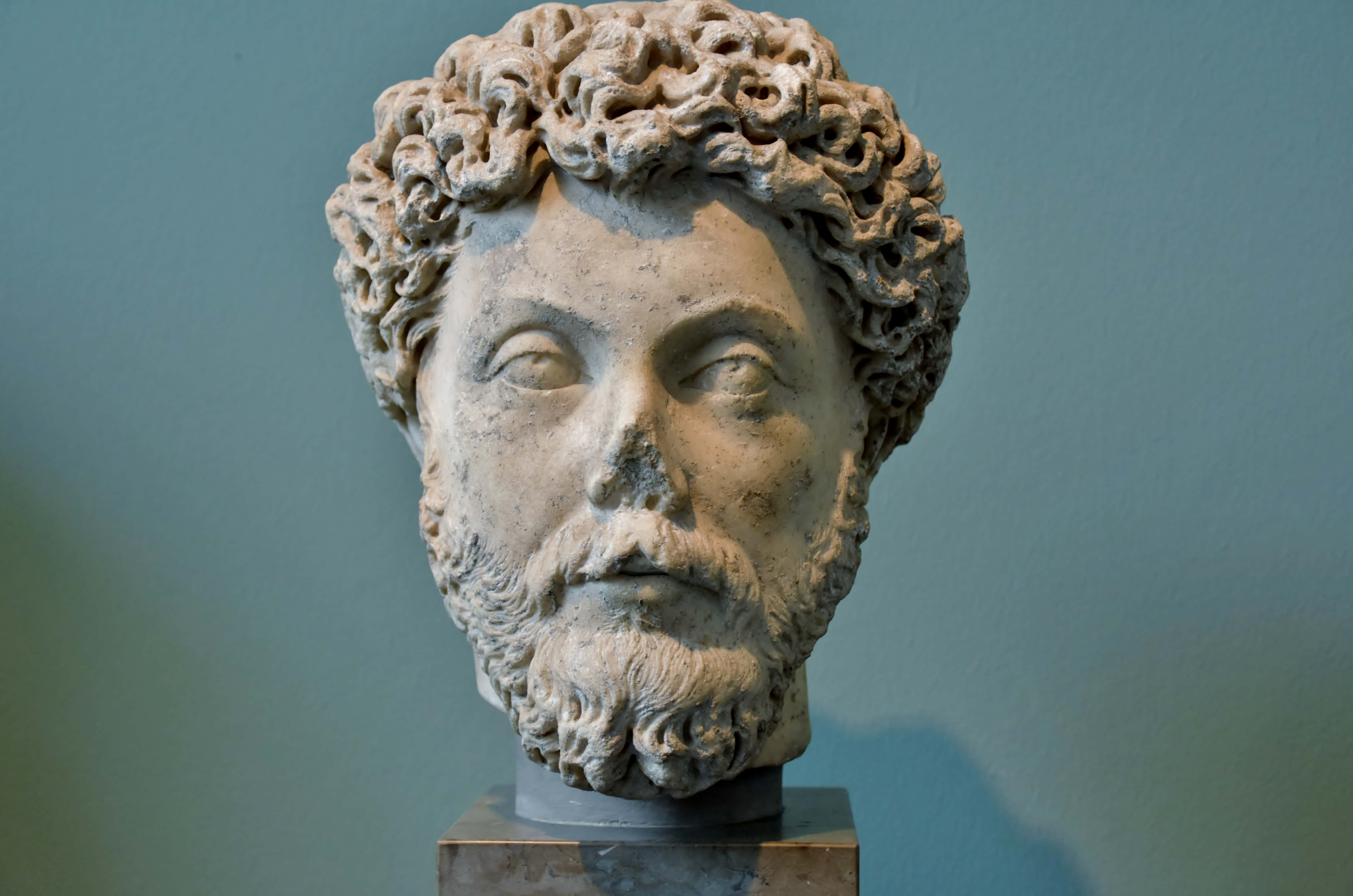 Wikimedia Commons, Richard Mortel
Wikimedia Commons, Richard Mortel
27. She Covered Her Tracks
Shortly after Cassius’ passing, letters in which Faustina denounced the traitor and commanded his punishment surfaced. These letters supposedly cleared her name, and Faustina and her husband returned to the glories of Roman royalty. Unfortunately, the son she fought to protect eventually became the bane of her existence, a fact she might have seen coming.
28. Her Nightmare Became Reality
Faustina had a startling dream while pregnant with the Roman heir. In the dream, she birthed two snakes instead of babies, with one clearly being more powerful than the other. Commodus was indeed born a twin and outlived his brother to eventually become the next Roman emperor. At this point, perhaps Faustina should have known that Commodus was bad news.
But she couldn’t possibly know how bad he would actually get.
29. Her Son Caused A Stir
If the rumors are to be believed, Faustina clearly got around. It’s no wonder that locals closely scrutinized the features of her children, wondering which actually belonged to her husband, the emperor. As the heir, Commodus’ introduction to the world came with a whole new level of scrutiny, one that pointed back to one of Faustina’s most infamous indiscretions.
 Roman Empire (2016– ), Netflix
Roman Empire (2016– ), Netflix
30. Her Past Haunted Her
Roman locals doubted that Commodus was the legitimate son of the emperor. In fact, many suspected that he was actually the son of her most legendary lover—a Roman gladiator (more on him later). The suspicions remain unconfirmed, but Commodus’ ugly behavior definitely fueled the rumor mill further.
31. She Raised A Vicious Child
Faustina’s son became known for being aggressive, mean, and rude, even as a child. One legend tells of a time when he ordered the execution of his servant for drawing him a bath that wasn’t warm enough. It’s no surprise that people thought he was a child of a murderous gladiator. Commodus’ awful behavior ultimately stained his family, and the entire Roman empire, forever.
32. Her Son Changed History
Commodus ruled so terribly that his reign marks the end of Rome’s period of peace. Historians recorded him as being a bad leader who, suspiciously so, was ridiculously invested in appearing as a gladiator. Faustina clearly failed on some level in her raising of the Roman heir—but she also struggled with raising her daughter as well.
 Roman Empire (2016– ), Netflix
Roman Empire (2016– ), Netflix
33. She Opposed Her Husband
Faustina strongly resisted her daughter, Lucilla’s, second marriage. While the reasons for her disapproval remain unclear, Faustina may not have thought that the man chosen for Lucilla, Claudius Pompeianus, held enough status to marry her daughter. However, despite her opinion, the two married anyway, on her husband’s orders.
For all the scandal and suspicion that whirled around Faustina, she still somehow managed to remain on record as an empress of many honors.
 The Fall of the Roman Empire (1964), Paramount Pictures
The Fall of the Roman Empire (1964), Paramount Pictures
34. The Public Revered Her
Long before Faustina’s affairs entrenched her in scandal, the Roman society awarded her the highest Roman honor of “Augusta” in 147 AD. She was still just a teenager at the time, although she and Aurelius had already married. Perhaps her success in childbearing earned her this initial praise, but she carefully added further good deeds to her record.
35. She Kept Tradition
Like many empresses before her, Faustina accompanied her emperor husband as he led many wars during his reign. Lewd rumors or not, Faustina stood by her husband throughout these dangerous times. She clearly had a way with men, leaving a lasting impression on the workers she encountered during her extensive travels.
36. Men Loved Her
No doubt Faustina enjoyed the attention and the affection of the men in the armies as she traveled with Aurelius. The men so loved her that they dubbed her “mother of the camp”. Aurelius too found himself greatly impressed by her capabilities, and, somehow, seemed to think her a sufficient companion.
37. Her Husband Vouched For Her
History remembers Faustina’s husband as a good leader, a decisive and quietly intelligent man. But this certainly contrasts with the wild rumors surrounding Faustina’s behavior. Still, something special seemed to exist between them, as Aurelius himself praised his wife, calling her “obedient, loving, and devoid of affectation” in his own records.
However, other family members weren’t nearly as nice to the Empress.
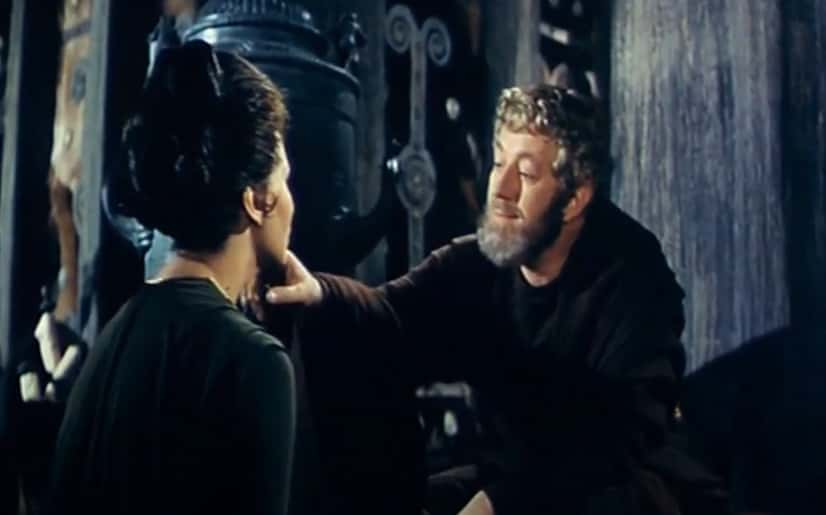 The Fall of the Roman Empire (1964), Paramount Pictures
The Fall of the Roman Empire (1964), Paramount Pictures
38. She Lost a Fortune
As a member of the Roman elite, Faustina expected to receive a huge sum of money when her great aunt passed. However, her aunt clearly found some fault with her niece and made a surprising decision about her money. Instead of leaving it to Faustina, the rightful heir, she reportedly left her fortune to some associates who were also her companions. Faustina did not take the news well.
39. She Had Her Pride
Faustina could have demanded her inheritance but refused to do so. She had far too much pride. Reports claim she didn’t want to look greedy, preferring to maintain her air of prestige. She declined to even buy any of her aunt’s expensive jewelry in the estate’s final auction. This image consciousness remained with the empress right to the bitter end.
40. She Was On The Job
Even though historians considered Aurelius himself a good and peaceful ruler, many wars marked his reign over Rome. During one of these conflicts in the East, Faustina died suddenly while accompanying her husband. Her short life certainly swirled with rumor and ambiguity. And the end of her life was just as mysterious, if not more so.
 The Fall of the Roman Empire (1964), Paramount Pictures
The Fall of the Roman Empire (1964), Paramount Pictures
41. She Died Suspiciously
Scholars and historians remain undecided on the cause of the empress’ demise. Some reports claim she passed from natural causes, while others declare the empress took her own life, perhaps to cover up some further wrongdoing. A more interesting explanation, though, is cause to wonder if her past finally caught up with her.
42. People Wanted Her Gone
Faustina made a lot of questionable choices during her reign as empress, but none so grievous as her alleged support of the man who tried to usurp her husband’s throne. According to some reports, retaliators killed the empress for her romantic involvement with the traitor, Cassius. With all the uncertainty surrounding her life, it’s hard not to be suspicious about her cause of death.
But although something seemed fishy, her husband went to great lengths to make her look like a good person.
 Roman Empire (2016– ), Netflix
Roman Empire (2016– ), Netflix
43. She Became Immortal
At least Faustina’s husband seemed distraught at her passing. In the Roman tradition, the rulers could crown great people gods and goddesses at their passing, and Aurelius made a quick move on his wife’s part. He declared his wife a goddess, and erected temples in her honor. This would have been more than enough, but he pushed even further.
 The Fall of the Roman Empire (1964), Paramount Pictures
The Fall of the Roman Empire (1964), Paramount Pictures
44. Her Legacy Lasted
In Faustina’s honor, Aurelius renamed the place she died, changing it to Faustinopolis. Moreover, admirers built the Baths of Faustina in Greece in her honor and they still hold her name. Somehow, this scandalous empress managed to make a respected name for herself. And, as a result, her husband helped others on her behalf.
45. She Helped Others
When Faustina’s mother died, her father was so moved by her life and dedication that he created a fund for the poor girls of Rome in her honor. Faustina’s passing inspired Aurelius to do the same in honor of his wife, and he increased the fund further. Aurelius went to great lengths to pay tribute to his wife, which is why his next move, or more explicitly his inability to move, made sense.
 The Fall of the Roman Empire (1964), Paramount Pictures
The Fall of the Roman Empire (1964), Paramount Pictures
46. Her Husband Never Got Over Her
Though Aurelius had every right to remarry after Faustina, he never took advantage of the opportunity. Perhaps he really did love Faustina and thought he’d never have something like that again. However, reports state that he worried about how a new wife might treat his children. In Faustina's absence, he remained single for the rest of his reign.
I mean, who could compete with her—especially knowing the story of her most scandalous affair, which is also the only one we haven't covered yet...
 The Fall of the Roman Empire (1964), Paramount Pictures
The Fall of the Roman Empire (1964), Paramount Pictures
47. She Had Gruesome Taste
In one of her most notorious rumored affairs, Faustina romantically involved herself with a powerful Roman gladiator. This news became easy inspiration for the gossip train, as gladiators in Rome were symbols of all things powerful, forbidden, and irresistibly appealing. It’s easy to validate a betrayed husband’s anger. But Faustina’s husband, the Roman Emperor, supposedly reacted with dangerous rage.
 Roman Empire (2016– ), Netflix
Roman Empire (2016– ), Netflix
48. Her Husband Got Rid Of The Competition
According to legend, Faustina’s husband turned to his astrologers for advice. The astrologers shared mystical advice about how Aurelius could not only punish his wife, but solve her infidelity altogether. He then ordered the execution of the gladiator, likely in one of Rome’s many gruesome execution methods of the day. Faustina’s lover was gone, but her punishment was just beginning.
 The Fall of the Roman Empire (1964), Paramount Pictures
The Fall of the Roman Empire (1964), Paramount Pictures
49. She Took An Unusually Gory Bath
Aurelius ordered Faustina to bathe in the blood of her executed lover. Supposedly, such an act should rid her of her passions and urges, turning her into the pious Roman Royal she was meant to be. But horrifying, bathing in blood was only the tip of the iceberg; it was only the first half of this bizarre fix. Things got even more deranged.
 The Fall of the Roman Empire (1964), Paramount Pictures
The Fall of the Roman Empire (1964), Paramount Pictures
50. She Engaged in A Weird Ritual
The final act of Faustina’s cleansing took the whole procedure another notch up on the creepiness scale. After bathing in her lover’s blood, Faustina’s husband ordered her to have intercourse with him, which she reportedly did. In another version of the story, which reversed the sequence of events, he made her sleep with the gladiator, and killed him during the act, bathing his wife in the man's blood.
As disturbing as this whole event came to be, it seemingly did nothing to quell Faustina’s raging passions and desires.

